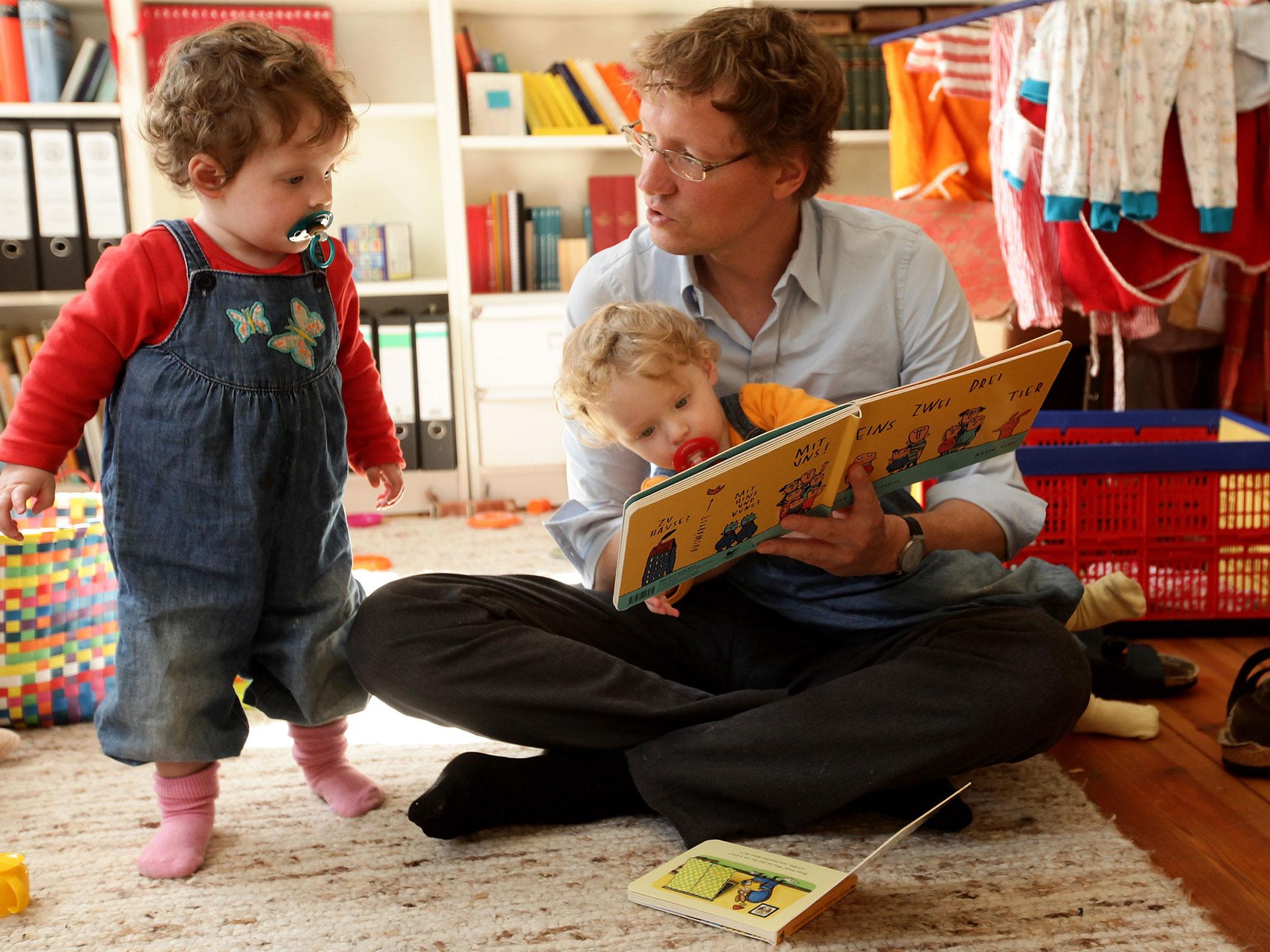‘Parental leave system is broken’: Number of fathers taking paternity leave plunges to ‘10-year low’
‘New dads desperately want to spend time with their babies - but what message are we sending to them with a system that gives them just a fortnight?’

Your support helps us to tell the story
This election is still a dead heat, according to most polls. In a fight with such wafer-thin margins, we need reporters on the ground talking to the people Trump and Harris are courting. Your support allows us to keep sending journalists to the story.
The Independent is trusted by 27 million Americans from across the entire political spectrum every month. Unlike many other quality news outlets, we choose not to lock you out of our reporting and analysis with paywalls. But quality journalism must still be paid for.
Help us keep bring these critical stories to light. Your support makes all the difference.
The number of fathers taking paternity leave has plummeted to a 10-year low, with only around a quarter of eligible fathers taking time off work after their child is born, new research has found.
The study, carried out by law firm EMW, discovered only 176,000 men took advantage of their right to take paternity leave in 2020-21.
This is far below the 652,000 women who decided to take maternity leave during the same time period – with researchers estimating around 652,000 men became fathers in this time.
The report found the number of men taking paternity leave shot up by 70 per cent between 2005-6 and 2016-17, soaring from 130,000 to an all-time high of 221,000 fathers taking paternity leave.
Since then the numbers have steadily dropped off. The last time there were roughly as few fathers taking paternity leave as there are now was back in 2008-9 when 170,000 fathers took leave.
Jon Taylor, of EMW, said: “For a lot of men, taking paternity leave has become a luxury they can’t afford during the pandemic.
“At a time of huge pressure on household finances, volunteering for a pay cut to £152 a week just isn’t viable for many people.”
He argued the “well-meaning policy” of shared parental leave is not working in the way it should be as he warned the proportion of fathers choosing to go on paternity leave has stayed “stubbornly low for years and has now actually started to decline.”
Parents in Britain can choose to take shared parental leave of up to 50 weeks, while paternity leave is currently 14 days, and fathers are given either £151.20 per week, or 90 per cent of their average weekly earnings — whichever sum is lower.
Mr Taylor added: “If the government is aiming to increase use of the paternity leave, bringing the level of pay closer to the national minimum wage would be a good first step.”
The combination of statutory paternity pay being so low and the extra financial pressure of the Covid crisis is likely to have increased some father’s hesitation about temporarily halting work to be with their new child, researchers at the company added.
Andrew Bazeley, of the Fawcett Society, a leading gender equality charity, told The Independent: ”The research evidence shows that new dads desperately want to spend time with their babies – but what message are we sending to them with a system that gives them just a fortnight and £300 for their troubles?
“That's if they even qualify – self-employed or insecurely employed fathers don't. The parental leave system is broken, and this holds women back too. If men aren't encouraged and enabled to take an equal share in the lives of their kids, we will never close the gender pay gap.
"The government needs to reform and invest in a system that offers all dads decent pay and leave that is reserved for them so that the pandemic doesn't set gender equality back by decades.”
EMW noted the rise in people working remotely from home in the Covid crisis is also likely to have had led to fewer fathers taking paternity leave due to more men spending time with their children while working remotely.
“Furlough may also have allowed fathers to see more of their newborn children, but even when taking this factor into account, the number of men taking paternity leave is still worryingly low,” the law firm said.
“Fathers being allowed to take paternity leave is also good for businesses, fostering better employee mental health as new fathers feel supported to take time off and are not forced to prioritise work ahead of their families.”
The firm also argues that paternity leave enables fathers to connect with their new children, as well as empowering new parents to share childcare more evenly.
Subscribe to Independent Premium to bookmark this article
Want to bookmark your favourite articles and stories to read or reference later? Start your Independent Premium subscription today.



Join our commenting forum
Join thought-provoking conversations, follow other Independent readers and see their replies
Comments